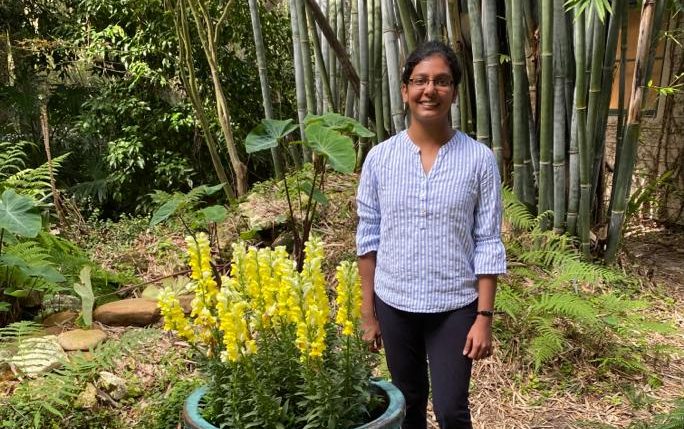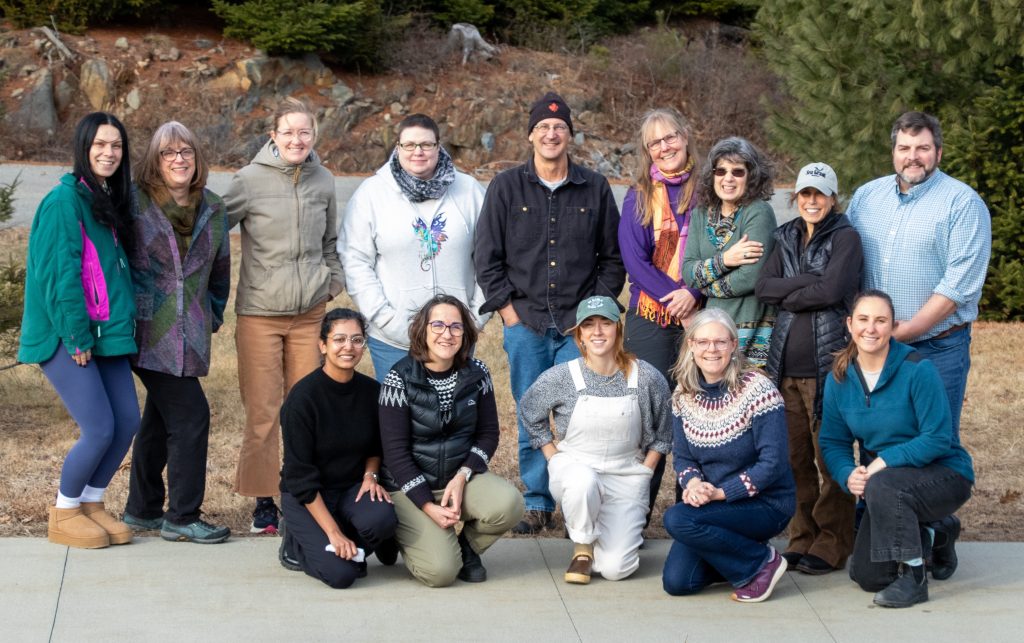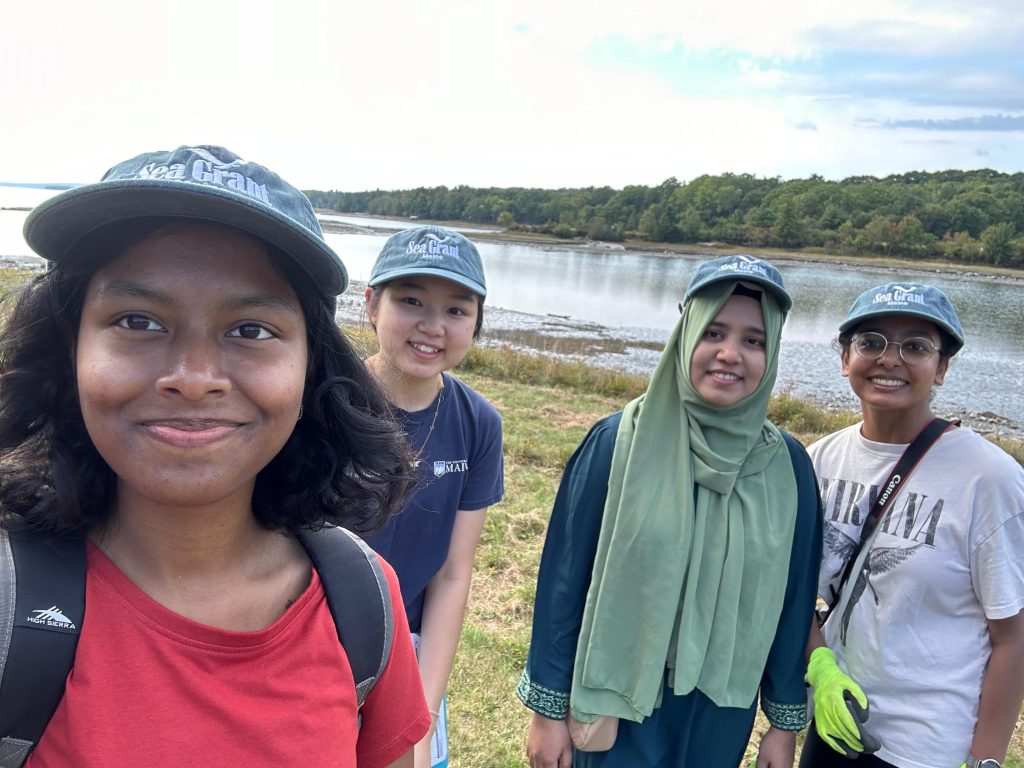
Dr. Harsha Elizabeth James: Learning through a community perspective
I am currently working as a postdoctoral research associate at Maine Sea Grant, engaged in the Marine Debris Challenge Project. The three-year project, Reducing Marine Debris at the Source: Material Replacement and Source Reduction for Single-Use Food Packaging, is supported by the NOAA National Sea Grant Program. As part of the project, a cross-disciplinary team, including members from the Department of Chemical and Biomedical Engineering, Process Development Center, Department of Anthropology/Climate Change Institute, and Maine Sea Grant Program, is working on developing and testing different types of materials to replace plastic products currently used for packaging, storage, and shipping with sustainable materials from our forests and oceans and is engaging with industry partners and consumers to identify and test approaches to shift food packaging systems away from single-use disposables and towards reusable packaging alternatives. I am primarily responsible for designing, supporting, and tracking synergistic activities to enhance integration and transfer of knowledge across the project’s four research components and with external partners, stakeholders, and the project’s advisory committee.
Coming from a culturally diverse country, India, where every state has people speaking a different language, I have always been fascinated by the influence of cultures on the opinion building process of different communities or social groups. During the Rural Agricultural Work Experience period of my bachelor’s and master’s thesis research years focused on fisherwomen empowerment programs, I got to travel across India and interact with fishers, students, teachers, researchers, and leaders from diverse communities. This made me realize that the interaction with people is what helps me give meaning to what I am striving to learn, and thus it is important to learn how they interpret and understand things.
My awareness of the importance of perspectives and narratives inspired me to work in the socio-economic division of the Central Marine Fisheries Research Institute (CMFRI) in India. This awareness was further cemented into a strong belief while working with stakeholders from different parts of the world as part of the “Global learning for local solutions: Reducing vulnerability of marine-dependent coastal communities” project at CMFRI. I primarily worked on research projects that evaluated and studied the socio-economic impact of climate change on coastal communities and worked with them to understand the social, cultural, and psychological factors that shape their climate change opinions and behaviors.
In 2019, I moved to the United States to pursue my PhD in Extension Education from the University of Florida. My PhD research focused on climate change knowledge, attitude, beliefs, and adaptive capacity of fishers in Florida. The research study aimed to understand the different factors that shape the climate change behavior of the fishermen along the coast of Florida to help frame and develop effective climate change mitigation and adaptation programs.
I am interested in research that focuses on interdisciplinary approaches that bring together stakeholders from different fields to address climate change and natural resource management challenges faced by coastal communities around the world. I have been diligently following the”Maine Won’t Wait,” a fantastic climate action plan created by the Maine Climate Council. Currently, I am enrolled in the Graduate Certificate in Climate Science and Adaptation program offered by the University of Maine’s Climate Change Institute. I’m excited to learn more about Maine’s initiatives for mitigating and adapting to climate change while also exploring ways to contribute to and support these efforts through research and education.


